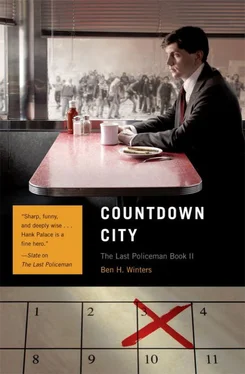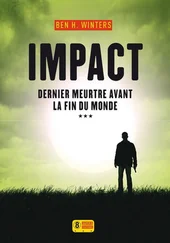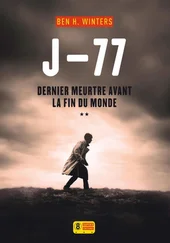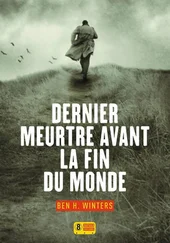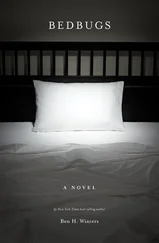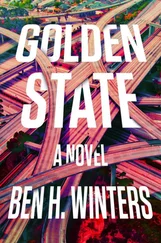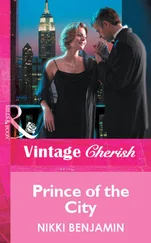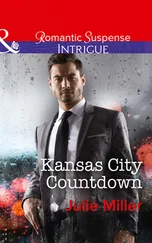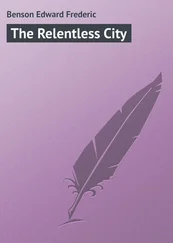“You shouldn’t be wearing a suit,” Nico tells me for the third time this morning.
“It’s what I brought,” I say. “I’m fine.”
We’re making our way up the long hill, overgrown with crab-grass and onion grass, toward the imposing castlelike facade of Thompson Hall. Houdini trots along behind us.
“We’re going to a utopian society, run by hyperintellectual teenagers. It’s July. You should have put on some shorts.”
“I’m fine,” I say again.
Nico gets a pace or two ahead of me and raises a hand in greeting to the two young women—girls, really—coming forward off the steps of Thompson to meet us. One is a light-skinned African American girl with short tightly braided hair, green capri pants, and a UNH T-shirt. The other is pale skinned, petite, in a sundress and a ponytail. As we get closer, past the flagpole, they both raise shotguns and point them at us.
I freeze.
“Hey,” says Nico, nice and easy. “Not with a bang.”
“But with a whimper,” says the white girl in the sundress, and the guns come down. Nico hits me with the smallest, sliest of winks—all the signs and shibboleths—and I exhale. This entire moment of peril has escaped the notice of my vigilant protector: Houdini is sniffing at the ground, digging up tufts of wild grass with his teeth.
“Oh, hey, I know you,” says the short white girl, and Nico grins.
“Yes, indeed. It’s Beau, right?”
“Yeah,” says Beau. “And you’re Nico. Jordan’s friend. You were here when we put up the greenhouse.”
“I was. How’s that going?”
“So-so. We got great dope, but the tomato vines will not take.”
The black girl and I look at each other during this exchange and smile awkwardly, like strangers at a cocktail party. We’re not alone, I’ve noticed: Hanging out on the stone wall that extends from the right side of the building are two kids, all in black, each with a bandana pulled up over the lower half of his face. They’re stretched out on the wall, relaxed but watchful, like panthers.
“You’re working perimeter now?” says Nico to Beau.
“I am,” she says. “Hey, this is my girlfriend, Sport.”
“Hi,” says the African American girl, and Nico smiles warmly. “This is Hank.”
We all shake hands, and then Beau says, “Listen, sorry,” and steps forward, and Nico goes “Totally okay,” and they frisk us, one at a time, quick perfunctory pat-downs. They open the heavy duffel bag that Nico took with her from India Garden, unzip it, peek inside, then zip it back up. I’m empty-handed, just a couple of blue notebooks in the inside pocket of my suit coat; the handgun, Nico strongly suggested I leave back at the restaurant.
“Why are you dressed like that?” Sport asks.
“Oh,” I say, looking down and then up. “I don’t know.”
I can feel Nico’s irritation rolling off her. “He’s in mourning,” says my sister. “For the world.”
“All right, you guys are clean,” says Beau brightly. “As you know.”
“Oh my God,” says Sport, bending to pet the dog. “So cute. What kind of dog is she?”
“He,” I say. “He’s a bichon frisé.”
“So cute,” she says again, and it’s like we’re in one of those alternate dimensions, just some folks hanging out on the front steps of campus: green lawn, blue sky, white dog, a group of friends. Detective McGully has remarked on the gorgeous run of summer weather this year. He calls it nut-kicker weather, as in, “that’s just God, kicking us in the nuts.”
Good old McGully , I think in passing. Off and running .
The boys on the wall are not introduced, but their aesthetic and affect are familiar; the kinds of young men one used to see on the evening news, rushing through city streets in clouds of tear gas, protesting the meetings of international financial organizations. These two seem confident and calm, long legs dangling over the stone walls of the university, passing a cigarette or joint back and forth, strips of ammunition pulled across their chests like seatbelts.
“So, hey,” says Nico. “Hank is coming in with me, just for the day. He’s looking for someone.”
“Oh,” says Sport. “Actually—” She stops, tenses up, and looks to Beau, who shakes her head.
“You’ve been here before, so you’re good,” says Beau to Nico. “But unfortunately your friend has to be quarantined.”
“Quarantined?” says Nico.
Quarantined. Terrific.
“It’s a new system,” Beau explains. She’s a small woman with a small voice, but she’s clearly not timid. It’s more like she’s insisting that the listener pay attention. “The idea came from Comfort, but there was a whole Big Group vote on it. In quarantine, newcomers are instructed in the function of our community. Divested of their old ideas about living in the self, and at the same time divested of their personal possessions.” She’s fallen into a rhythm, here, she’s reciting a set speech. “In quarantine a newcomer learns the way thing are handled at the Republic, and to prioritize the needs of the community over their needs as an individual.”
“There’ve been a lot of people just, like, wandering in,” Sport adds more casually, and Beau scowls. She liked her official explanation better.
“What people?” says Nico. “CIs?”
“Yeah,” says Sport, “But also just—you know. Whoever.”
“And so in quarantine,” says Beau, reclaiming the conversation, “we learn that the Republic is a system of responsibility, not just of privilege. That there is no such thing as a utopia for one—it must be a utopia for all.”
Sport nods solemnly, picks up the phrase and murmurs it in echo: “no such thing as a utopia for one…”
Okay , I’m thinking. Got it. Let’s cut to the chase here . “How long is quarantine?”
“Five days,” says Beau. Sport winces apologetically.
Damn it. Julia Stone is in there somewhere, I’m sure of it, seated between the Doric columns of one or another collegiate hall, with Brett Cavatone laying his heavy head in her lap. In five days, who knows? I take a look at Nico, who still looks relaxed, all smiles, but I can see the unease flashing in her eyes—this quarantine business is as much a surprise to her as it is to me.
“But it’s easy,” says Sport. “Seriously. It’s in Woodside Apartments, the big dorm on the other side of Wallace? And in terms of the divestment or whatever, you can keep super-personal items. Family pictures and stuff.”
“Actually, not anymore,” says Beau.
“Really?”
“Yeah. Comfort just decided.”
“When?”
“Yesterday.”
“I didn’t even know they were conferencing on it.”
“Yes,” says Beau. “No more personal or sentimental items. It’s rearview.”
She says the word “rearview” with a definite and meaningful emphasis, like it’s been lifted from the language and glossed with a shiny new meaning, one accessible only to those who’ve undergone five days of quarantine at the Woodside Apartments. I look up at the banner, the flapping bed sheet, the proud standard of asteroidland.
“Come on, guys,” says Nico. “Henry’s not trouble. Can we give him a pass?”
“Like a hand stamp?” says Sport, but her laugh is fleeting; Beau is quiet, stone-faced.
“No,” she says, and her hand drops back to the butt of her gun. “The quarantine is a pretty firm rule.”
“Well, yesterday—” starts Sports, and Beau cuts her off. “Yeah, I know, and they got serious shit for it.”
“Right, right.”
Sport looks at Beau, and Beau looks over her shoulders at the Black Bloc guys, the crows watching us from the wall. Nice egalitarian utopian society, I’m thinking, everybody making sure everybody else is following the rules.
Читать дальше
